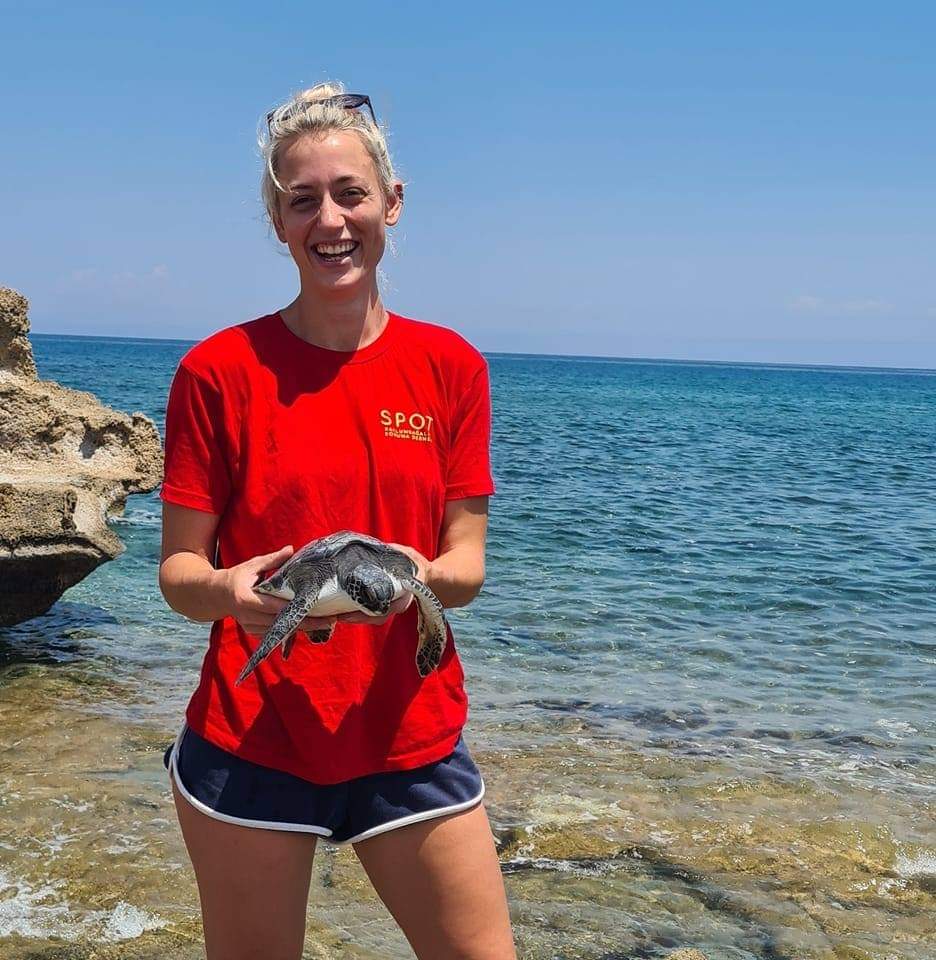Our world-leading marine research underpins a wide range of undergraduate and postgraduate programmes: Research-led teaching | Exeter Marine | University of Exeter. In our Graduate in Focus series we look at the achievements of our MSc graduates who have excelled in conservation around the world since studying with us.
Today we meet Josie Palmer, MSc Conservation and Biodiversity graduate (2018) and now a PhD student at University of Exeter!
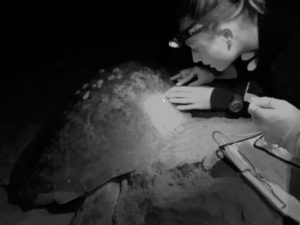
Hi Josie! First off, why don’t you tell us a bit about what you are up to now?
I am a first year PhD student entitled, “Assessing the Impact of Small-Scale Fisheries on Sea Turtle Populations in the Eastern Mediterranean Basin”, with the University of Exeter.
After completing my MSc, I applied for A NERC funded PhD at the University of Exeter, where I reached the final round of the selection process but was unfortunately unsuccessful. I spent 8 months working for the Marine Turtle Conservation Project (MTCP) in North Cyprus from February-October 2019 as an Onboard Fisheries Observer, Stranding and Lab Manager and Team Leader for the Cyprus Bycatch Project and MTCP turtle nesting season. I then applied for the same PhD I was unsuccessful for during Spring 2019 in November 2019 which was advertised with a different type of funding this time and was successful, starting my PhD in January 2020.
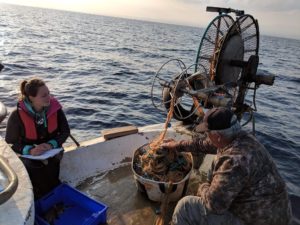
What drew you to studying at the University of Exeter after completing your BSc?
I started looking for an MSc in the final year of my undergraduate, and had spoken to a number of my lecturers about courses they would recommend, including my project supervisor and personal tutor, and was highly recommended the MSc at UoE by all of them. The only other course I was looking at was with Imperial College London, but I decided that the research focuses and atmosphere of UoE more closely aligned with what I wanted to do and the experience I wanted to have.
The Penryn Campus is a hub for marine conservation, and I knew I would get a wide variety of opportunities to engage with this as well as receive some of the best lecturing from experts in their field. The coastal lifestyle is definitely one of the main draws for the campus, and definitely took the edge of the stress you can experience while studying.
How did the MSc help prepare you for your career in research?
The support from staff is truly unprecedented. I never felt like I couldn’t ask for help or that I was asking a stupid question. You’re not just a student, you’re an individual to the university.
There was a heavy emphasis on the research project aspect of the degree and this is what really started to get me to think more in depth about my work and prepare me for further study and research.
Practicing interview scenarios was incredibly helpful to see how I might be interviewed for future jobs and how to prepare for them. I have gained a whole suite of analytical skills that will be transferable to a wide range of jobs, not just in conservation. There were and still are so many opportunities to practice communicating your research in a friendly and non-judgmental atmosphere, which is something I used to be terrified of doing but have definitely relaxed more with because of these opportunities.
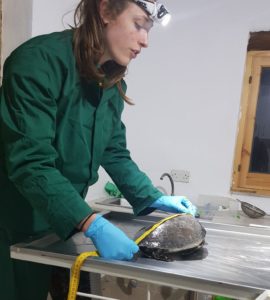
Any advice for someone looking to follow a similar career?
I think there is a tendency for people to assume that the best way into this field is to get as much practical experience as possible. Usually it’s assumed this means volunteering abroad to gain fieldwork experience of a particular groups of animals or species. These are definitely core skills you need but there are many other skills that are often overlooked. Some of the best advice I’ve been given is that it’s not about the animal or plant or system that you study, its about having the skills behind the scenes to be able to say something meaningful from your research. Once you have the skills in a particular area of research you can transfer these to many others.
After I complete my PhD, I’d like to continue to work in scientific research but in what capacity I’m not sure yet. One thing I’ve learnt throughout my academic career so far is that you can only do so much planning, and the best decisions I’ve made so far have been through taking things one step at a time and seeing what’s out there and what appeals to you the most when it’s time for your next move!
Any advice for anyone thinking of applying to the University of Exeter?
There is something for everyone at the University of Exeter, so if you’re looking for a relaxed and friendly and professional atmosphere to study in, then you’ve found it!
Thanks Josie!
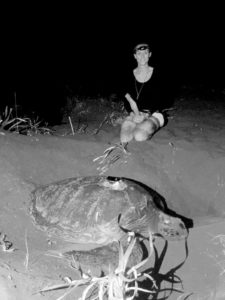
If you want to find out more about any of our suite of #ExeterMarine Masters and Undergraduate courses use the links below!
- NEW: MSc in Marine Environmental Management
- NEW: MSc in Marine Vertebrate Ecology and Conservation
- MSc in Conservation and Biodiversity
- MSc in Conservation Science and Policy
- MSc in Evolutionary and Behavioural Ecology
- MSc in Sustainable Development
- MSc in Environment and Human Health
- MSc in Renewable Energy Engineering
- BSc Marine Biology
- BSc Zoology
- BSc Environmental Science
- BSc Conservation Biology and Ecology
- BSc Evolutionary Biology
- BSc Animal Behaviour
- BEng Renewable Energy Engineering

